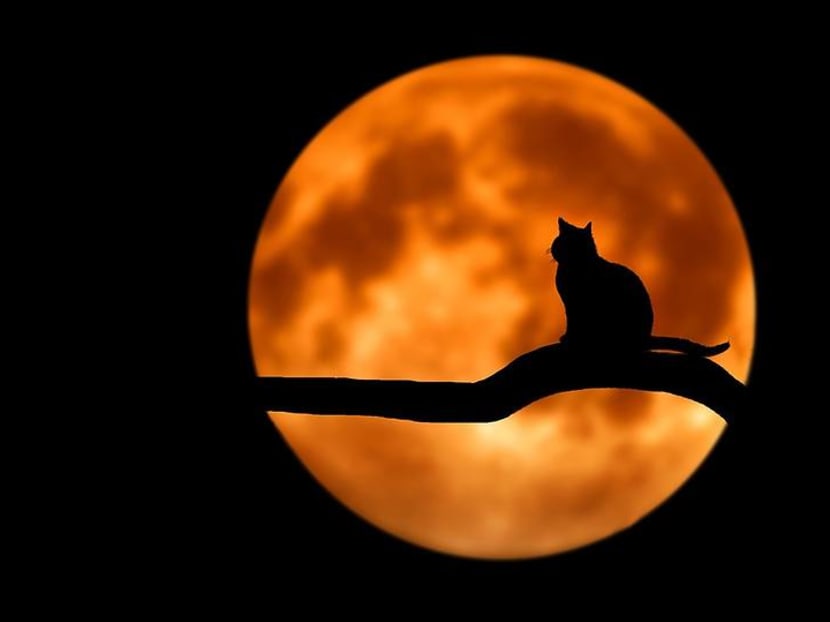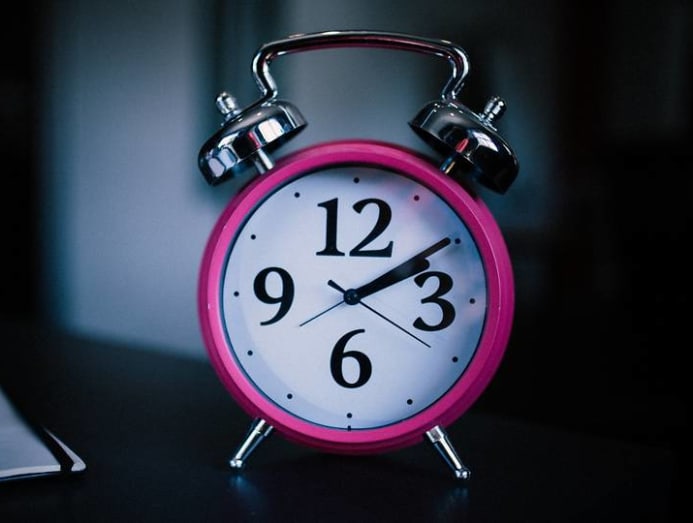Wide awake when you should be sleeping? You might be smarter and more creative
Studies have shown that there are benefits to being a night owl compared to early birds – but there also may be a higher risk of heart disease.

(Photo: Pixabay)
It is 1am and the entire world is asleep – everyone, that is, except you. Yes, while everyone has already called it a night hours ago, you’re still feeling fresh as a daisy.
You’ve gone for a night jog or might have had a couple of drinks earlier, and now you’re either cosied up with a book, binging on Netflix, filing that office report or tinkering with that next personal project. Oh, and you’re thinking of doing a bit of yoga, too.
While Singaporeans’ horrible sleeping habits have been in the news lately, your “problem” isn’t that you can’t go to sleep or have a hard time sleeping – it’s that you’re not feeling sleepy at the moment. You can’t help it. You’re a night owl.
WHAT IS A NIGHT OWL?
So, what exactly does this mean? Simply put, it’s someone who has a tendency to be up late at night. Famous night owls include Barack Obama, Thomas Edison, Leonardo da Vinci, and a host of other creative types such as writers, who commune with their muse at the dead of night.
READ: Can’t sleep at night, dozing off in the day – it could point to bigger health issues
The factors for being one ranges from a genetic mutation to one’s age and environment.
Sleep experts often diagnose those who stay up late as having delayed sleep phase disorder (DSPD). The condition, which reportedly affects 15 per cent of people in the United States, means having a delayed circadian rhythm, when one’s body clock isn’t in sync with the rest in a particular environment. A recent research published in Cell has identified that a mutation of the CRY1 gene might be causing this delay in the onset of sleep.
As for the age factor, another study – this time at the Northumbria University in the UK – found that one’s sleep cycle changes as you age.
While 90 per cent of two-year-olds are “morning” people, this goes down to 58 per cent by the age of six By the time one hits puberty, it continues to shift towards the evening, which continues until one is in his or her early 50s – by which time, it goes back to a preference for mornings.

The same study highlighted other important external factors: Noise, crowds and lighting can affect one’s preference for morning or evenings; while it also cited other studies that Germans are more likely to prefer the night to, say, Indians or Slovakians. People in urban and rural areas in the same country also have different sleep cycles.
NOT SPECIFICALLY INSOMNIA
One thing that many people seem to confuse night owls with are insomniacs. But that’s not necessarily the case.
“An insomniac is a person who has difficulties with sleep and this may present as problems falling asleep, intermittent awakenings, or early morning awakenings,” said Dr Lim Boon Leng, a psychologist at Gleneagles Hospital, who specialises in insomnia.
“Insomniacs may become night owls as they cannot sleep. However, most night owls simply choose not to sleep so early, but do not have problems falling asleep or sustaining sleep when they are tired.”
READ: Want to sleep better? Get a good pillow.
Being a night owl isn’t necessarily a bad thing, he added. “Some people just function better at night.”
That said, the catch for many night owls is the very fact that makes them stand out – their body clocks are mismatched with an environment that expects people to lead nine-to-five lives.

And unfortunately for those with an evening “chronotype” (the term to describe one’s preferred waking and sleeping schedule) who have to adjust, they experience what’s called “social jet lag”.
“Many still have to go to school or go the work on time in the morning, and may not have the luxury of sleeping late and waking up late. They may end up late for school or work,” said Dr Lim.
“However, if an individual's life is stable in the night and they function better in the night than the day, being a night owl may be beneficial for him or her. If they have regular routines, including regular meals, sufficient rest and sleep, as well as regular exercises, they are very much like anyone else.”
BENEFITS OF BEING A NIGHT OWL
The jury is still out on whether being a night owl is an overall good thing. But through the years, there have been some studies that show certain possible benefits to being one.
- Night owls might be more creative
For one, it seems like night owls seem to be more creative, according to research by the Catholic University of the Sacred Heart in Milan. The study by its Department of Psychology – which included 120 men and women – entailed a series of drawing tests to measure creative thinking. The criteria included originality, elaboration, flexibility and fluidity.
Night owls aced the test, while early birds apparently struggled to get the average score.

One possible reason, according to lead author Professor Marina Giampietro, was that leading a more unconventional life could have encouraged a “non-conventional spirit” and “the ability to find alternative and original solutions”.
- Night owls might be smarter
A study done at the London School of Economics and Political Science suggested that night owls were “more intelligent”. Evolutionary psychologist Dr Satoshi Kanazawa’s study looked at the sleep and wake times of 20,000 teenage students from 80 schools, and revealed that the brightest students both went to bed later and woke up later. Those with low to average intellect reported knocking off earlier and waking up earlier, too.
READ: Struggling to wake up every morning?
It’s not the only study to show this. Another one, by the University of Madrid and involving 1,000 teenage students, also found night owls to be good at inductive reasoning, which is not only considered a sign of intelligence but the type associated with prestigious jobs and higher incomes. (Morning people, though, did better at exam results per se at about eight per cent more.).
Another study also revealed that night owls in one MBA programme also got higher test scores.
- Night owls are stronger (at night)
If you’re a night owl who loves to go on evening runs, this should perk you up even more. There was a study done by the University of Alberta in Canada that tested participants’ leg muscle strength at different times of the day. While morning people’s strength remained constant, night owls peaked in the evening.
The study’s co-author Olle Lagerquist reckoned it’s because the latter’s nervous system is all fired up from around 9pm, showing increased motor cortex and spinal cord excitability. For morning folks, these two never peak at the same time, and their brains are more excitable at 9am and decrease throughout the day.

- Night owls have more mental stamina
Yes, they might be on a different body clock but later in the day, they tend to be more alert. A study done by the University of Leige in Belgium revealed that while night owls and early birds’ respective mental alertness are equal in the “day time” (or an hour and a half after they both woke up), those who stayed up late had faster response times 10 and a half hours later, meaning they were more mentally alert longer – although not by much, only six per cent better.
- There are simply just more night owls around
Despite all appearances, it might be the case that night owls aren’t quite the anomaly people think they are. A study in Germany’s Aachen University believe that 20 per cent of people are actual night owls, and only 10 per cent are early birds, with the rest falling someone in-between.
- And they have larger social networks than early birds, too
Compared to morning people, those who stay up late tend to have wider social networks, according to a study last year in Aalto University in Finland. Researcher Talayeh Aledavood and his colleagues looked at the social network and sleeping patterns of around 1,000 people over a year.
NEGATIVE EFFECTS OF BEING A NIGHT OWL
But hold your horses for a moment. While these studies might make a case for being a night owl as not that bad, there are also studies that point to the not-so-good.

In fact, the recent Northumbria University study revealed they may have a higher risk of heart disease and Type 2 diabetes compared to their morning counterparts.
READ: Feeling sleepy at work? Where to take power naps in Singapore
The study showed an increased health risk – which has something to do with erratic eating patterns and the kind of food they eat. According to the study, night owls consume more alcohol, sugars, caffeinated drinks and fast food; eat fewer but larger meals – and much later in the day. In contrast, morning folk eat slightly more fruit and vegetables per day.
There’s also a link to increased risk of Type 2 diabetes because one’s circadian rhythm influences how glucose is metabolised in the body – the levels naturally reach their lowest point at night, but seeing as how night owls are still eating around that time, their bodies may not process sugar well.





